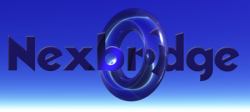2021. What an interesting year. With the world turned upside down by a pandemic that seemingly had its sights set on...
Microsoft Buys GitHub – Who Owns You?
Nexbridge

Microsoft (MSFT) has just purchased GitHub Inc. for $7.5B US. When I heard the news, I was in a Venture Capital meeting of my own, so had my heavy financial hat on. On the outside, I showed as little emotion as I could – and some of you know how hard that is for me. On the inside, I went from OMG to a bit giddy. Honestly, I have to admit I was expecting something like this would happen. Microsoft has a history of picking up high-value properties, and GitHub.com’s hit rate is comparable to Amazon.com’s. so not a big surprise there. Microsoft has bought other companies before, and GitHub seems like just another content site – with billions on lines of intellectual property. Will this matter to GitHub users? Probably not much, other than the usually expected EULA changes, a bunch more ads, and new pricing policies like E1, E2 – you know – Microsoft.
There is more intent here, however. I also knew that Microsoft was moving in the git direction anyway. Their Team Foundation Server (TFS) was enhanced a couple of years ago to be git-compatible. This acquisition was more of a yeah, I should have bet on this, moment. This is potentially significant for Enterprise-class customers, for whom Microsoft was losing Windows market share to Linux and MAC in recent years. Acquiring GitHub comes with the GitHub Enterprise Server, a core component in software development and asset and intellectual property management in Private Clouds.
The impact to the NonStop customer community is that many of your approved technology listsinclude all of the Microsoft development product suite, which should now include GitHub Enterprise, and because it depends on it, git too. This is a pretty big deal because git already runs on most platforms, including your NonStop. Microsoft seems to be finally embracing the git community, but I would suggest as a means, not an end. Where their strategy leads us is still unclear, but you can bet your donuts that it is likely a carefully thought out move by Microsoft to try to Own the Enterprise.
I would expect existing Enterprise Git users to be looking at this and wondering whether to migrate to GitHub Enterprise – and that’s probably exactly what Microsoft wants you to do. Whether you are using GitHub Enterprise or Atlassian BitBucket Server, you’re in the same space, and Microsoft is probably going to be aggressively marketing to get your business. One thing to carefully watch is how the git ecosystem responds over time, including: the integrations that are maintained with GitHub and BitBucket; and the support for moving content in and out of git. It is fine, for example, to be able to move your text files into GitHub, but can you continue to store release contents and integrate with your production environments? These types of factors are important to monitor when looking at the aftermath of an acquisition like this, but those type of changes don’t happen overnight. Just keep your options open and keep watching the ecosystem evolve.
But regardless of that, Microsoft taking over GitHub Enterprise will raise the credibility of the git space in many industries, not just software development, and may even increase Open Source adoption because we can integrate audit trails from contributors and from vendors into one unified view of history. On the whole, this acquisition is likely a good thing for our community.


